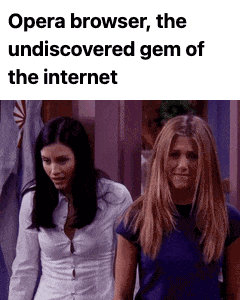
Privacy Browsers and Web 3.0
Web3 browsers represent the future of the internet in a sense that they offer a decentralized and more private experience compared to their Web2 counterparts. Web3 browsers work on blockchain technology and enable peer-to-peer communication between users, cutting out the need for centralized intermediaries like Google and Facebook. This creates a more democratic and open internet, where individuals have more control over their data and content.
In contrast, Web2 browsers rely on centralized servers and collect user data for targeted advertising and other purposes. These browsers also suffer from security issues as they are vulnerable to hacking and data breaches. Web3 browsers, on the other hand, offer better security by using cryptography to protect user data.
The advantages of Web3 browsers are already evident in some of the applications built on blockchain technology. Bitcoin, the first and most well-known cryptocurrency, uses blockchain technology to enable peer-to-peer transactions without the need for intermediaries. Decentralized social media platforms like Mastodon and Steemit are also gaining popularity as users become more concerned about their privacy and data protection.
Overall, Web3 browsers represent a significant step forward in the development of the internet. By offering a more private and decentralized experience, they offer a way for individuals to take back control of their online lives. As more users adopt Web3 browsers and applications, we can expect to see a more democratic and open internet emerge, where users have more say in how their data is collected and used.
In a world where data privacy and security are becoming increasingly important, web 3.0 browsers are quickly gaining popularity among users who value control over their digital footprint.
What is Brave?
Brave is a browser based on Chromium which offers various features that prioritize user privacy, having a robust decentralized ecosystem. It blocks ads, and ad trackers, resulting in a faster browsing experience on desktop and mobile devices. For crypto heads, Brave offers the features of storing, purchasing, and swapping virtual assets, buying Fiat through Wyre, and access to NFTs and multichain facilities with the integration of dApps. Brave also supports hardware wallets like Trezor integrating them into the network with ease.
One of Brave's unique selling propositions is its business model. Brave offers privacy-protecting ads that pay publishers and users when users engage with the ads. This model is optional and transparent. What’s more fascinating is that the users can earn crypto tokens when they opt-in to ad viewing.
Apart from that, the browser lets users access live market data through CoinGecko. It provides EVM-compatible network support for multiple blockchain channels allowing them to interoperate within Ethereum.

Brave Versus Traditional Browsers like Google Chrome
Brave has been one of the most popular privacy browsers in recent years, with over 30 million active users as of 2021. Its focus on privacy and security has been well-received by crypto users, and its built-in ad and tracker blocker has been a key selling point.
With the rising demand for security and privacy, browsers similar to Brave show the potential of taking over the market. There are several reasons why someone might choose Brave over traditional browsers like Google Chrome. Here are some of the key points:
- Privacy: Brave is a privacy-focused browser that automatically blocks ads and website trackers in its default settings, while Google Chrome is known for its data collection practices. Brave's primary mechanism for privacy is called Brave Shields, which combines traditional tracker-blocking technology with several under-the-hood browser configuration tweaks. Additionally, Brave encrypts browser data at the client (device) level, which means that users can sync browser profiles between their desktop and mobile devices while keeping their data private.
- Speed: Brave is generally faster than Chrome, partly because it blocks ads and trackers by default, which reduces the amount of data that needs to be loaded. In some cases, Brave has been shown to load web pages up to six times faster than Chrome.
- Battery life: Brave has been shown to use less battery life than Chrome, particularly on laptops and other portable devices.
- Rewards: Brave has its own cryptocurrency called Basic Attention Token (BAT), which users can earn by opting into Brave Rewards. Users can then use BAT to support their favorite websites and content creators by tipping them directly within the browser. This system is designed to be more transparent and fair than traditional advertising models, where advertisers often take a large cut of the revenue while users receive no compensation.
- Customizability: Brave is based on the open-source Chromium browser, which means that users can install most Chrome extensions and themes on Brave. In addition, Brave comes with both light and dark themes and allows users to customize their privacy settings and preferences to a greater extent than Chrome.
Brave and similar Web 3 browsers offer several advantages over traditional browsers like Google Chrome, including enhanced privacy, faster browsing speeds, better battery life, a rewards system, and greater customizability. Being built on Google’s Chromium, many of these browsers are able to generate the same search results as Google, making them a better choice for users.
Mozilla Firefox
If you're searching for a browser suitable for cryptocurrency trading, it only makes sense to overlook popular options like Chrome and Edge. However, Firefox might be an exception to this category. Unlike mainstream browsers, it deserves consideration due to its robust security and recognition in the mainstream market.
Firefox is praised for its HTTPS encryption, NoScript protection against hackers, sandbox techniques, fingerprinting protection, and additional features for crypto enthusiasts such as protection against crypto-jacking and unauthorized mining. Its extensive library of extensions, including reputable wallet extensions that undergo safety inspections, is also mentioned. Firefox is an open-source browser that allows users to review its code and make custom adjustments if desired. Additionally, mobile versions of Firefox, like Firefox Focus, are available for Android and iOS users, which block pop-up ads and tracking cookies.
When compared to Brave, Firefox emphasizes its robust security features and extensive library of extensions, while Brave emphasizes its privacy-focused approach, cryptocurrency rewards program, and cross-device syncing capabilities. However, when it comes to speed, Brave tends to be slightly faster in loading pages. But it also uses more RAM than Firefox due to its preloaded features. So, in terms of preferences, if privacy is your only concern, then the browsers really don’t differ much and any of them would do the job!

WaterFox: A Firefox Fork
Waterfox is a Firefox-based browser best known for its lightweight and security features. Unlike Firefox, it disables Pocket by default. In most cases, users are required to adjust the vanilla Firefox browser to get their desired privacy and data security which is a bothersome process. But for waterfox, you get the same outlook and by default privacy mode which is pretty convenient.
However, there have been certain limitations to the browser. The most common being reported is its incompatibility with many websites. Also, the browser is not always caught up with the security updates and features of Firefox. It usually lags a day or two behind, which is not a deal breaker for most regular users.
Ungoogled Chromium
Ungoogled Chromium is basically the Chrome browser minus all the tracking features of Google. It is an open-source variant of the Chromium. So, users can easily view the source code and contribute to it. However, when compared to browsers like Brave, it is not as focused on blocking ads and trackers. What it does mainly is remove just the google specific web services through a series of patches during the compilation. Hence, you will be able to get the flavor of Chrome without having to compromise your security.
Carbon
Initially, Carbon started out its journey as a Web2 browser in 2016 for Android devices. The current one has been designed to cater to the needs of Web3 features and claims to have many similarities to Brave. For instance, the reward system of Carbon is expected to offer tokens to its users for viewing particular ads which would otherwise be blocked by its default ad blocker.
One of the significant features of carbon is that it includes crypto features like multichain wallet and bridge as standards which are missing in most other web3 browsers. Despite Carbon’s lacking of many features and extensions, when compared to Brave, users are pretty hyped because of its built-in free VPN.
Opera Web3 Browser
The Opera Web3 Browser is a comprehensive web3 browser with impressive features, including support for multiple blockchain channels, a customized browsing experience, and an in-built wallet. Its performance, speed, and efficiency make it a top-rated browser, and its focus on privacy is an added bonus.
The Opera Web3 Browser offers a host of features that make it an attractive option for users. It is designed into the Opera browser, providing users with a familiar interface. The browser offers support for multiple top-ranked blockchain channels, including ETH, TRX, and CBK, among others. This ensures that users can easily access and interact with their preferred blockchain channels from within the browser.
Adding to that, Opera Web3 Browser provides a customized browsing experience. Users can expect a more personalized experience while browsing, thanks to the customized ads that cater to their interests. The browser also includes a built-in ad blocker, which restrains unauthorized tracking and data collection, further enhancing the user's privacy.
The wallet feature is another notable aspect of the Opera Web3 Browser. The in-built wallet stores and swaps virtual assets, acting as the user's digital identity on the decentralized cluster. The wallet is particularly useful for users engaging in frequent transactions on the blockchain channels. Users can also store their private key on their smartphone device, turning it into a hardware wallet for the multi-wallet.
When it comes to speed and efficiency, Opera Web3 Browser has been shown to perform well, compared to other web3 browsers. What is impressive is that it maintains its performance despite including a host of features like the in-built wallet and ad blocker.
However, despite all the acclaimed features and advantages, Opera is yet to earn the trust of the user base. There’s a fair amount of controversy regarding the browser protecting user data since it is established on the Chromium base but the source code is not open like Brave.

Osiris
The Osiris Browser is a revolutionary web browser that offers innovative features that make it suitable for the decentralized web cluster. It provides seamless support for several top-rated blockchains and is easily accessible across significant portals. The browser is developed by Ascent and its bias towards crypto-related features comes off as a result of its linkage with Golden Finance, China's largest blockchain media outlet.
Osiris incorporates an in-built wallet called Metawallet which lets users manage various cryptocurrencies without relying on extensions. It supports ETH, ACE, and TRX networks and plans to extend to other networks like BSC and DOT.
Unlike Brave, Osiris supports dAppstore, a marketplace for decentralized applications. These features provide an embedded experience for expert crypto users while incorporating basic functionalities and an intuitive user interface. Osiris Armor, the browser's ad and tracking shield, blocks intrusive ads and cookies that collect personal data for personalized ads. However, the add-blocking feature of Osiris is not as emphasized as Brave.
When compared to Brave, Osiris has almost the same effect on blocking ads. But, Brave is preferred for its features and reward system.
Puma Browser
Puma Browser is an excellent choice for those who value privacy and security while browsing the web. With its user-centric portal, web monetization tool, and support for P2P file hosting services, Puma Browser stands out from the competition. It is accessible on both Android and iOS devices and provides users with a user-centric portal for browsing a diverse range of DApps from its powerful decentralized interface.
One of the most significant features of the Puma Browser is the in-built web monetization tool called Puma Coil. This tool allows creators to earn incentives directly without interference, making it a popular choice among content creators. Puma Coil adopts a subscription-based system for incentive distribution, and participants can access premium content by spending five dollars a month and halting all ads.
Puma Browser also supports P2P file hosting services which makes it a secure and reliable option for sharing files. With this feature, users can share files without worrying about data breaches or unauthorized access.
The Browser provides enhanced security from website trackers and intruders, making it a popular choice among privacy-conscious users. It ensures that users are protected from malicious websites and data theft, providing them with a secure browsing experience.
Conclusion
Web3 browsers represent the future of the internet, providing a decentralized, more democratic, and open platform for users. Brave is a popular browser that prioritizes user privacy and security and offers a business model with privacy-protecting ads. It also lets users access live market data, supports hardware wallets, and has its own cryptocurrency called BAT. Many other similar Browsers are catching upto that standard. Compared to traditional browsers like Google Chrome, browsers like Brave offer enhanced privacy, faster browsing speeds, better battery life, a rewards system, and greater customizability. As data privacy and security become increasingly important, web 3.0 browsers like Brave and Firefox are well-positioned to take over the market.